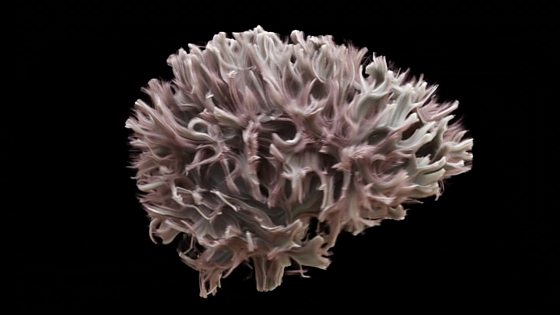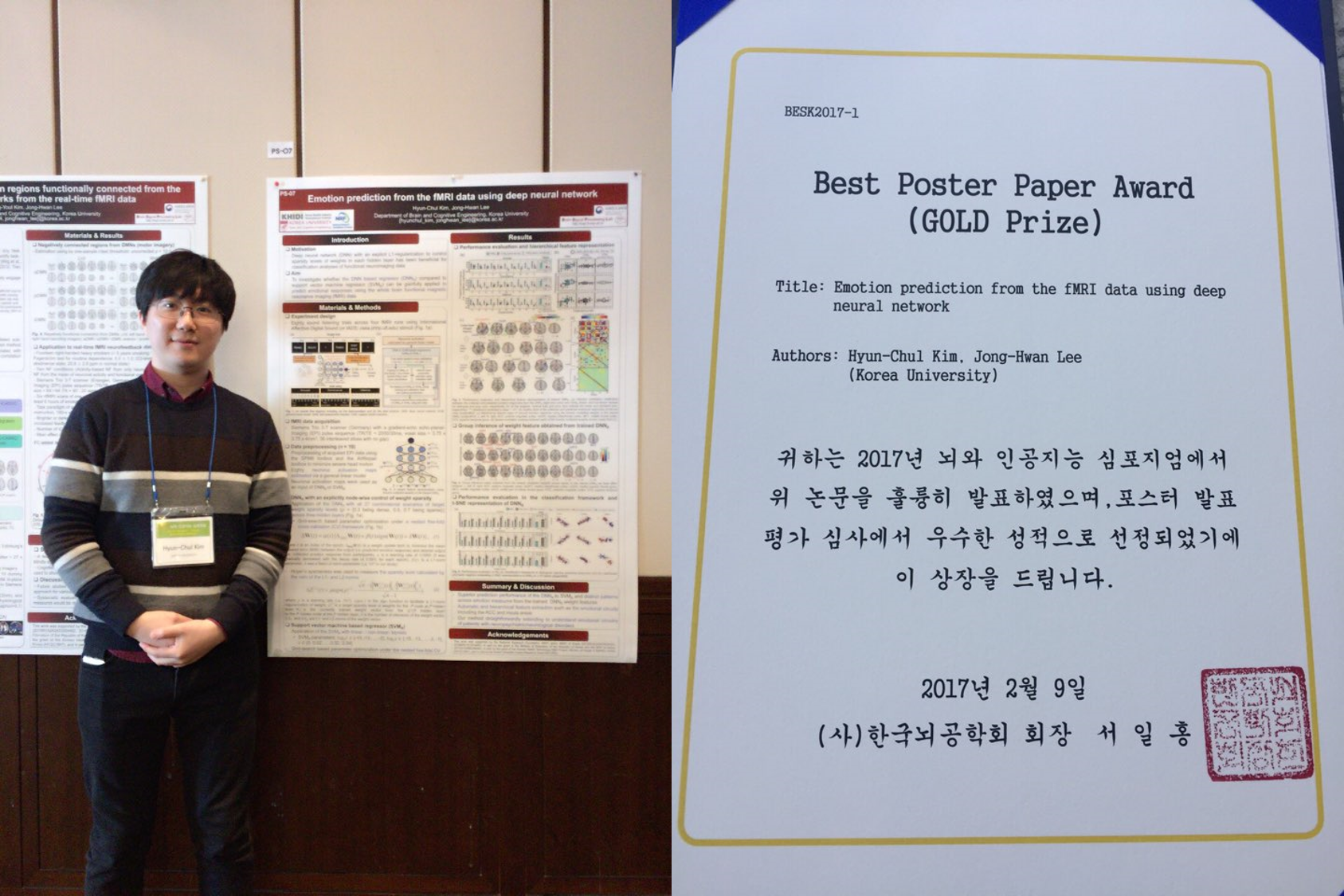Seminar Papers

The world’s most detailed scan of the brain’s internal wiring has been produced by scientists at Cardiff University.
The MRI machine reveals the fibres which carry all the brain’s thought processes.
It’s been done in Cardiff, Nottingham, Cambridge and Stockport, as well as London England and London Ontario.
Doctors hope it will help increase understanding of a range of neurological disorders and could be used instead of invasive biopsies.
If you interested in, please click the following link.

“New technique helps elucidate the inner workings of neural networks trained on visual data”
Neural networks is for performing computational tasks by learning. The learning is conducted by analyze large sets of training data. However, it is difficult to recognize which data they are processing between input and output.
A researchers from Computer Science and Artificial Intelligence Laboratory (CSAIL) of MIT, showed a method to find out the process during training the visual scenes identification. From this study, Bau, one of the researcher of this study, mentioned that it suggests that “neural networks are actually trying to approximate getting a grandmother neuron”.
If you interested in, please click the following link.

(from MIT news)
Scientists have long believed that the central amygdala, a structure located deep within the brain, is linked with fear and responses to unpleasant events. However, a team of MIT neuroscientists has now discovered a circuit in this structure that responds to rewarding events. In a study of mice, activating this circuit with certain stimuli made the animals seek those stimuli further. The researchers also found a circuit that controls responses to fearful events, but most of the neurons in the central amygdala are involved in the reward circuit, they report.
If you are interested in, please click following link :
http://news.mit.edu/2017/brain-circuit-pleasure-inducing-behavior-0322

(from MIT news)
For robots to do what we want, they need to understand us. Too often, this means having to meet them halfway: teaching them the intricacies of human language, for example, or giving them explicit commands for very specific tasks. But what if we could develop robots that were a more natural extension of us and that could actually do whatever we are thinking? A team from MIT’s Computer Science and Artificial Intelligence Laboratory (CSAIL) and Boston University is working on this problem, creating a feedback system that lets people correct robot mistakes instantly with nothing more than their brains. Using data from an electroencephalography (EEG) monitor that records brain activity, the system can detect if a person notices an error as a robot performs an object-sorting task. The team’s novel machine-learning algorithms enable the system to classify brain waves in the space of 10 to 30 milliseconds.
If you are interested in, please click below.

MIT chemical engineers have developed an extremely sensitive detector that can track single cells’ secretion of dopamine, a brain chemical responsible for carrying messages involved in reward-motivated behavior, learning, and memory. Using arrays of up to 20,000 tiny sensors, the researchers can monitor dopamine secretion of single neurons, allowing them to explore critical questions about dopamine dynamics. Until now, that has been very difficult to do.
Strano and his colleagues have already demonstrated that dopamine release occurs differently than scientists expected in a type of neural progenitor cell, helping to shed light on how dopamine may exert its effects in the brain.
If you are interested in, please click following link:
http://news.mit.edu/2017/sensor-traces-dopamine-released-single-cells-0206
Award winner: Hyun-Chul Kim
Poster title: Emotion prediction from the fMRI data using deep neural network

Many congratulations!

(from MIT news)
The wisdom of crowds is not always perfect. But two scholars at MIT’s Sloan Neuroeconomics Lab, along with a colleague at Princeton University, have found a way to make it better. Their method, explained in a newly published paper, uses a technique the researchers call the “surprisingly popular” algorithm to better extract correct answers from large groups of people. As such, it could refine wisdom-of-crowds surveys, which are used in political and economic forecasting, as well as many other collective activities, from pricing artworks to grading scientific research proposals.
If you are interested in, please click the following link.
http://news.mit.edu/2017/algorithm-better-wisdom-crowds-0125

(from MIT news)
In adults, certain regions of the brain’s visual cortex respond preferentially to specific types of input, such as faces or objects — but how and when those preferences arise has long puzzled neuroscientists. One way to help answer that question is to study the brains of very young infants and compare them to adult brains. However, scanning the brains of awake babies in an MRI machine has proven difficult. Now, neuroscientists at MIT have overcome that obstacle, adapting their MRI scanner to make it easier to scan infants’ brains as the babies watch movies featuring different types of visual input. Using these data, the team found that in some ways, the organization of infants’ brains is surprisingly similar to that of adults. Specifically, brain regions that respond to faces in adults do the same in babies, as do regions that respond to scenes.
If you’re interested in, please click here,
http://news.mit.edu/2017/mri-scans-baby-brain-visual-cortex-0110

(figure from MITnew)
Our emotional state is governed partly by a tiny brain structure known as the amygdala, which is responsible for processing positive emotions such as happiness, and negative ones such as fear and anxiety.
A new study from MIT finds that these emotions are controlled by two populations of neurons that are genetically programmed to encode memories of either fearful or pleasurable events. Furthermore, these sets of cells inhibit each other, suggesting that an imbalance between these populations may be responsible for disorders such as depression and post-traumatic stress disorder.
If you’re interested in, please click here.
http://news.mit.edu/2016/two-neuron-populations-encode-happy-fearful-memories-1017

(figure from MIT news)
Scientists hoping to get a glimpse of molecules that control brain activity have devised a new probe that allows them to image these molecules without using any chemical or radioactive labels. Currently the gold standard approach to imaging molecules in the brain is to tag them with radioactive probes. However, these probes offer low resolution and they can’t easily be used to watch dynamic events, says Alan Jasanoff, an MIT professor of biological engineering and brain and cognitive sciences.
Jasanoff and his colleagues have developed new sensors consisting of proteins designed to detect a particular target, which causes them to dilate blood vessels in the immediate area. This produces a change in blood flow that can be imaged with magnetic resonance imaging (MRI) or other imaging techniques.
If you’re interested in, please click the following link.
http://news.mit.edu/2016/radiation-free-approach-imaging-molecules-brain-mri-1202